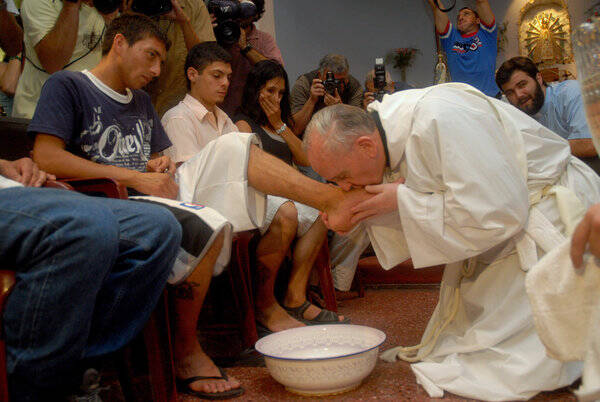It’s in the nature of the sacred to be separate. Sacer, the archaic Latin root of the English word, suggests that which is “cut off,” deliberately distinguished from what we call the secular. Religions create sacred time, sacred places, sacred objects, and sacred persons. Sometimes we see more when something is set at a distance. The sacred reveals by setting aside.
God doesn’t require the sacred. We do. God simply is holy, but holiness is something we see when set apart, distanced from us. In the Western religions of revelation—Judaism, Christianity, and Islam—the sacred can be said to invade the secular. At least that’s one way to think of revelation. In teaching that the divine became the human, Christianity directly assaults the distinction between the holy and the mundane. One might even say that there is something savage in the sacredness of the Christ. If tax collectors and prostitutes are entering the kingdom of heaven, it is because, in the ardent Christ, the kingdom itself has become aggressive, expansive. It doesn’t stay within the boundaries, which the human requires to discern the holy. The Gospel establishes a relentless vortex: the sacred maintains itself by raiding the secular.
For example, there is no institution narrative in the Fourth Gospel. In Saint John’s story of the Last Supper, there are no words about bread and wine becoming Christ’s body and blood. Yet certainly, when this final Gospel was composed, the church’s sacramental ritual already would have been well known by those who heard this account. Why does John replace the bread and wine with the washing of feet?
Perhaps the Beloved Disciple is confronting a problem similar to that of Saint Paul’s community in Corinth. The sacred had been so tamed that men and women failed to recognize the passionate ardor of Christ. In Corinth, the rich had found a way to exclude the poor from their sacramental table, and the apostle had to warm them that “anyone who eats and drinks without discerning the body, eats and drinks judgment on himself” (1 Cor 11:29). The problem wasn’t the sacred, insufficiently set off. It was a sacred no longer savage. The rich still gingerly approached the altar, but they kept the sacred from invading their tables.
Does the Fourth Gospel recall Jesus washing feet so that we can again recognize the savageness of the sacred, so that holy can wreck havoc with the secular? Does the Beloved Disciple remember this intrusive intimacy to keep piety from smothering the savagery of Christ’s love?
In The Great Reformer, his superb biography of Pope Francis, Austen Ivereigh records:
Reviewing the first years of his papacy, Ivereigh notes that “Some are furious at Francis’s apparent contempt for decorum and tradition: they say his decision to wash the feet of women on Thursday of Easter week was in direct violation of the rubrics, and that as pope he is free to change them but not to disregard them” (378).
Of course they are right. Rubrics should be changed, not ignored. But John Paul II did something similar when he told priests to staff confessionals on Good Friday, though on that day the rubric called for sacraments to be celebrated only in an emergency. Back in 1910, Pope X profoundly reordered the ancient order of sacrament reception, when he insisted that little children be allowed to receive Holy Communion before their Confirmations. That’s the problem with popes, as “vicars of Christ” they sometimes make Christ’s attitude their own. They allow the sacred to savage the secular.
Exodus 12: 1-8, 11-14 1 Corinthians 11: 23-26 John 13: 1-15








